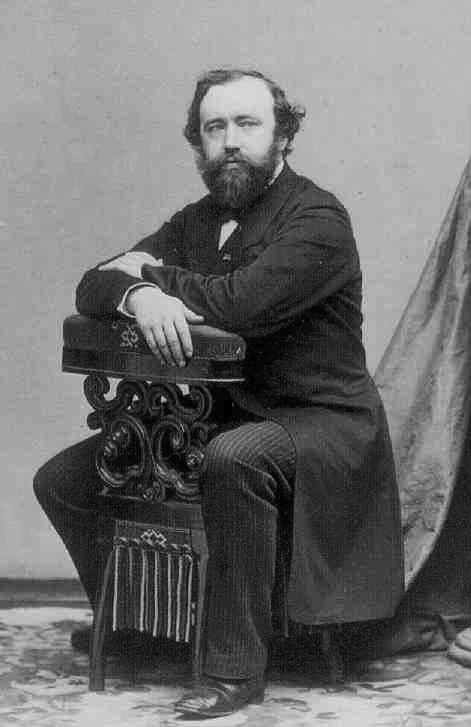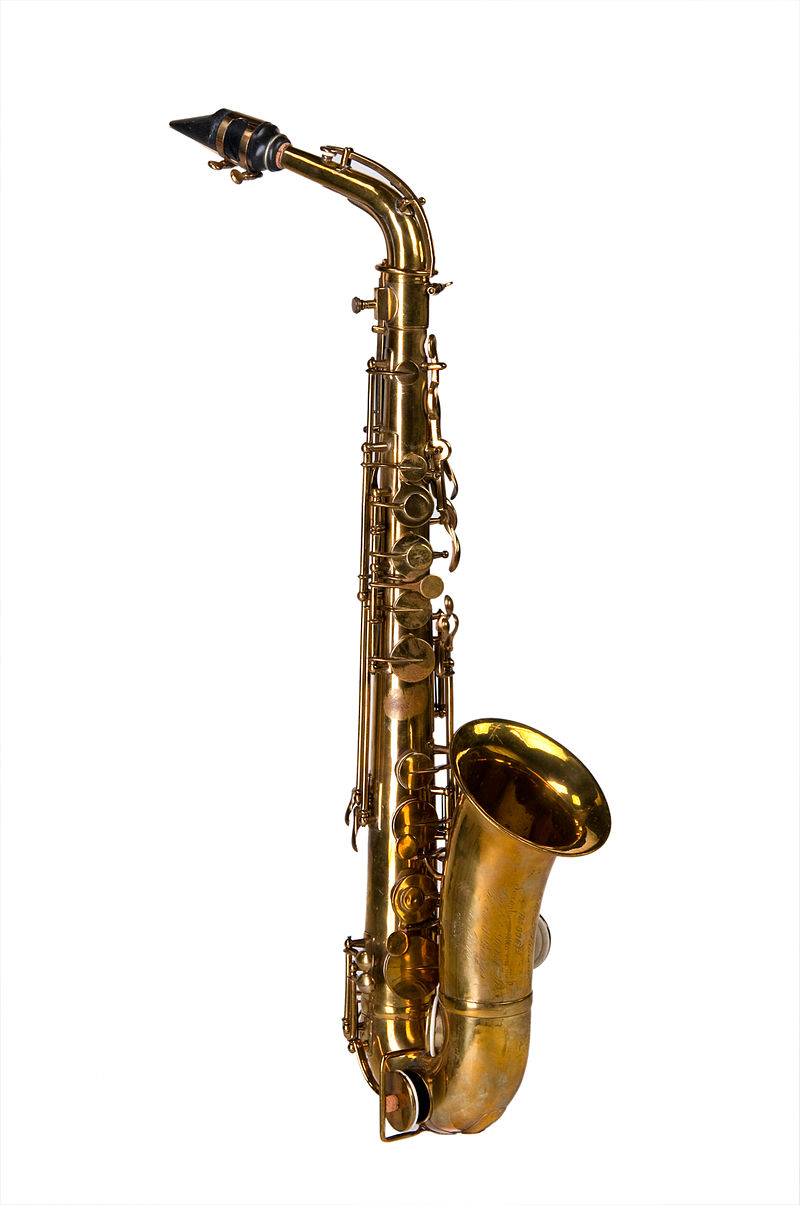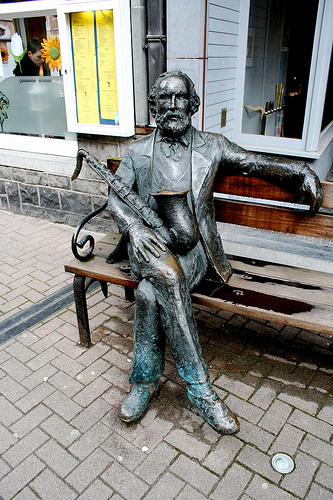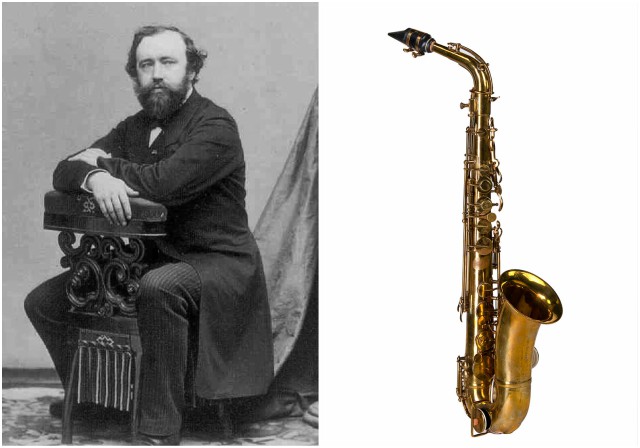Adolphe Sax was born on November the 6th, 1814, in Dinant, which was part of France at the time, but was then annexed by the Netherlands and in 1830 later became the independent country of Belgium.
He was the oldest of 11 children in his family, and probably the luckiest of them since he faced many near-death experiences in his early years.

He was lucky to survive his childhood, during which he fell from a third-story window and hit his head on a stone, swallowed a pin, was burned in a gunpowder accident and burned again by a frying pan, was poisoned three times by varnish fumes, hit on the head with a cobblestone, and nearly drowned in a river.
His father, Charles-Joseph Sax, was instrument designer who made pianos, harps, and wind and brass instruments.
Making musical instruments was in Sax’s blood so he became his father’s apprentice.
In 1828, he began his formal musical education at the Royal School of Music located in Brussels, where he studied the flute and clarinet.
When he was a teenager he created whole new designs for the clarinet and for flutes and a few years later he invented a new clarinet model, known as the 24-key clarinet.
In the early 1840s, Sax moved to Paris, where he had his own workshop and made instruments such as “saxhorns” and the lesser-known 7-bell trombone.
He was very successful, and his creations started to gain acclaim from the public. This is about the time when he met Hector Berlioz, an influential music critic.
In 1842, he showed Berlioz an early version of the baritone saxophone, and Berlioz was so impressed by the instrument that he wrote a review on the saxophone in Journal des Debats, the most influential arts publication of the day in Paris.

Soon, Sax started to produce the saxophone in different sizes, and saxophone started to gain in popularity, especially among military bands.
Rival builders tried to sabotage his innovations and he was once accused of stealing the idea of the saxophone from the Germans.
He managed to prove that his invention was in fact, an original idea, and continued to gain recognition and awards for his inventions.
Sax received his patent in 1846 and won his gold medal at the Paris Industrial Exposition in 1849.

In 1858, Sax was diagnosed with lip cancer, but he was successfully treated by an Afro-French herbalist.
Adolphe Sax died on February the 7th, 1894, at the age of 80.
Sax could not witness the greatest success of the saxophone; after it came to America, it evolved into an icon of American music.
We have another one for you: Experimental and obscure musical instruments from the bygone era
His invention would revolutionize the world of music during the 20th century, and begin one of the most popular genres that have ever existed – jazz.
